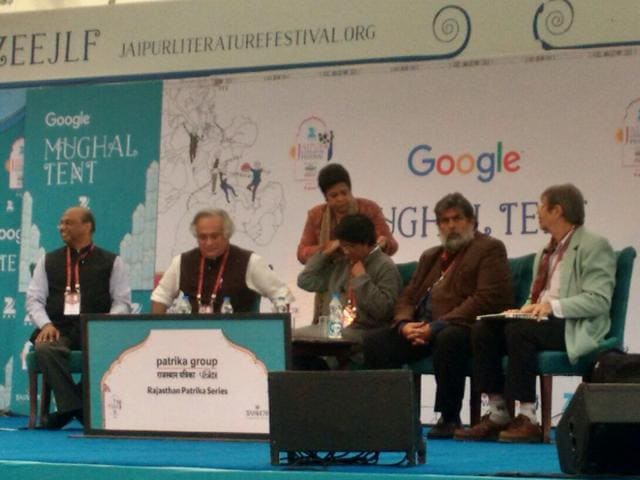The grow now, pay later model is ingrained in our mentality: Jairam
At JLF 2016’s Red Signals, Green Hopes session, former environment minister Jairam Ramesh gave three reasons why India must take a different development path: demographic pressure, climate change and livelihood concerns.
“India did not create the [global warming] problem but it must be a leader when it comes to offering solutions to the world. There is a great business opportunity [developing green technologies] and Indians must cash in on that,” Ajay Mathur, one of the key Indian negotiators at last year’s Paris climate conference, said at a session entitled Red Signals, Green Hopes. Mathur was in conversation with former environment minister Jairam Ramesh, naturalist and conservationist Valmik Thapar, and American writer Alexander Alex Shoumatoff. The session was chaired by Gene Campaign’s Suman Sahai.

Read: Writing sheds light on all darkness, says Atwood at JLF 2016
Mathur added that the Paris Conference had been a game changer because, probably, for the first time, governments realised that something needed to be done. They also agreed that public participation and transparency was needed if climate goals are to be met.
Read: Need to learn how vacuum in Iraq created ISIS, says Christina Lamb
Ramesh gave three reasons for why India must take a different development path: First, demographic pressure; second, climate change (India is one of the most vulnerable countries), third, the environment has become a public health concern (air pollution, water pollution); and fourth, livelihood concerns.
JLF 2016: How maritime history shaped our planet
Conservationist Valmik Thapar said that more than politicians, it was the 5-8 million strong government servants who needed to change their mindset on sustainability. “They need to be educated on these issues,” he said.
Shoumatoff, who documents his dispatches at http://blog.dispatchesfromthevanishingworld.com/), said that all political systems are flawed and so India should study the programmes that work and think out of the box to find out ways to balance growth and environment.
For more JLF 2016 stories click here.





